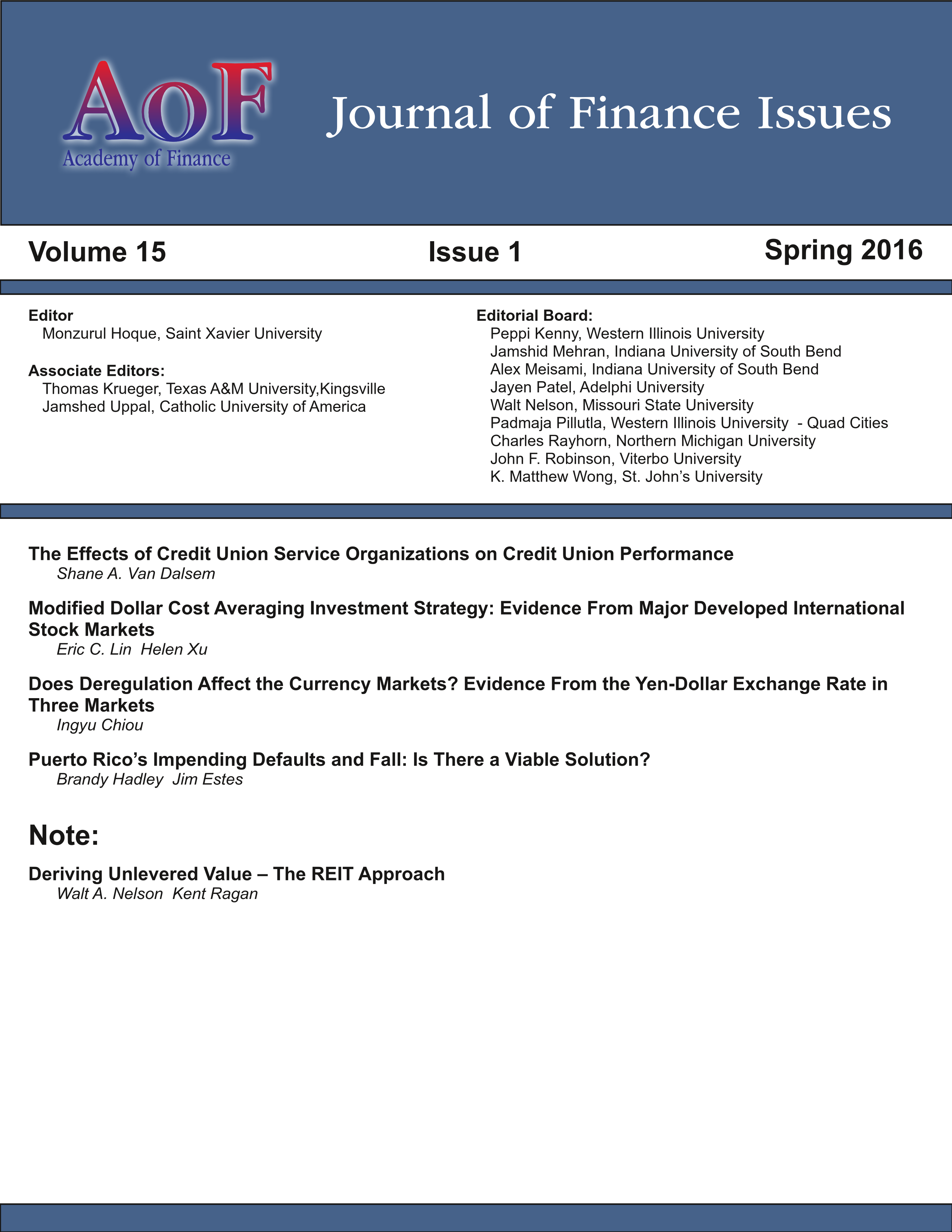Does Deregulation Affect the Currency Markets? Evidence From the Yen-Dollar Exchange Rate in Three Markets
DOI:
https://doi.org/10.58886/jfi.v15i1.2484Abstract
This paper examines how currency market deregulation affects the behaviors of the yen-dollar exchange rates in Tokyo, London, and New York. Using the intraday return (open to close) data, we find strong and consistent evidence that the three currency markets interact significantly, both before and after deregulation. For each of nine contracts, Tokyo positively affects London and New York, London positively affects New York and Tokyo, and New York positively affects Tokyo and London. In particular, the causality relationship is much stronger when one market trades right after another. When comparing basic statistics between the pre- and post-deregulation periods, we find that, after deregulation, the volatility of the yen-dollar exchange rate intraday returns increases, the range of the intraday returns broadens, the distribution of these returns becomes more left-skewed, and the distribution of the intraday returns moves further away from normality. These deregulation-induced changes hold true for all three markets and for most of nine contracts. We interpret our findings as evidence that foreign exchange deregulation encourages more participation and hence more competition, leading to a more efficient and unpredictable exchange rate in each currency market.





